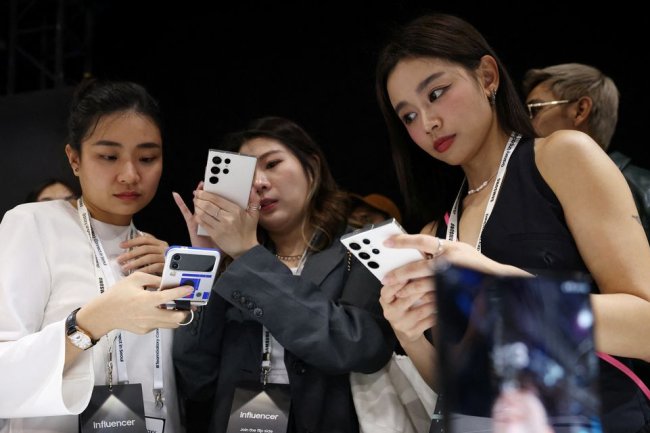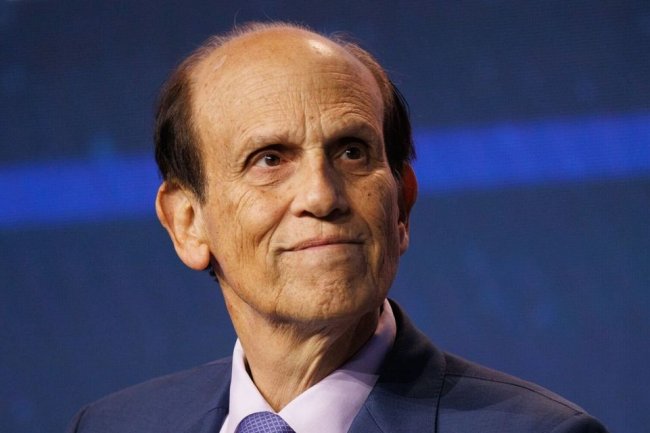AI Set to Upend the Talent Search at Ad Agencies and Brands
Generative AI could help recruiters find more diverse and specialized candidates, but job hopefuls are also using it to burnish their CVs A screenful of ChatGPT responses. Generative AI could turbocharge employers’ ability to find the best candidates for a given job, recruiters say. Photo: Jaap Arriens/Zuma Press By Patrick Coffee Aug. 7, 2023 6:00 am ET Just as generative artificial intelligence appears poised to change marketers’ day-to-day jobs, it is also likely to upend the work of the recruiters who find the people to fill those jobs. The technology could, on one hand, help brands and ad agencies more efficiently target their job searches, recruiters say, while on the other, it will make sorting through CVs more difficult—because many more of those résumés will themselves be the pr


A screenful of ChatGPT responses. Generative AI could turbocharge employers’ ability to find the best candidates for a given job, recruiters say.
Photo: Jaap Arriens/Zuma Press
Just as generative artificial intelligence appears poised to change marketers’ day-to-day jobs, it is also likely to upend the work of the recruiters who find the people to fill those jobs.
The technology could, on one hand, help brands and ad agencies more efficiently target their job searches, recruiters say, while on the other, it will make sorting through CVs more difficult—because many more of those résumés will themselves be the products of AI.
For over two decades, recruiters have used so-called machine-learning AI, primarily in the form of software that uses job descriptions to automatically filter applicant pools. The advent of generative AI, however, will turbocharge their ability to find the best candidates for a given job, recruiters contend.
“I’ve been doing this a long time, and this is probably the most pivotal thing I’ve seen that will disrupt recruitment,” said Shannon Moorman, global head of talent acquisition and executive search at advertising holding company WPP.
AI could be particularly helpful to marketing organizations, which often conduct complex searches designed to divine candidates’ future performance as much as their direct experience, Moorman said.

Bard, Google’s AI entry.
Photo: Nikos Pekiaridis/Zuma Press
The most immediate use for tools like ChatGPT and Google’s Bard lies in automating portions of repetitive tasks: writing direct messages to candidates and creating outlines for job listings. In both cases, AI-generated content can then be tailored by humans to better describe the sort of highly specialized and tech-focused roles that are increasingly sought by marketers.
ChatGPT “gets you maybe 40% of an outline, and from there you have to really fine-tune it,” said Zach Canfield, associate partner and director of talent at ad agency Goodby Silverstein & Partners. Efficiency gains created by generative AI cleared more time for the agency to find and target creative professionals, like those with experience in AI, virtual reality and related technologies, Canfield said.
Marketers frequently pursue international candidates for top creative roles. For them, generative AI can summarize the complex legal documents required to navigate U.S. immigration law, as well as help recruiters more fluently communicate with these candidates.
“With candidates, it is a two-way street. Sometimes my Spanish is stronger than their English, so I do believe [AI] gives some comfort and credibility and builds rapport both ways,” said Sasha Martens, president of creative recruiting firm Sasha the Mensch, who often uses Bard and other AI tools, such as translator DeepL, to more surely use local slang when recruiting outside the U.S.
Playing the strings
Generative AI’s most compelling use for marketing recruiters, however, may lie in its ability to streamline processes such as the creation of so-called Boolean strings, which are a series of “if, then, and” prompts used to more accurately target candidates, said Moorman.
In the past, WPP recruiters may have spent hours writing hundreds of strings in order to search for, say, software developers in the Bay Area with expertise in the JavaScript coding language, said Moorman. Now, generative AI has automated much of that away, creating Boolean strings that turn up candidates who fit recruiters’ goals, sometimes suggesting more precisely aimed keywords that recruiters hadn’t explicitly asked for.
Recruiters can also tap AI to pluck a certain group of keywords from an existing job description, using those terms to create a new string and further refine the search results, Moorman said.
When combined with machine-learning tools such as hireEZ, generative AI can throw open a search to include online circles like Reddit sub-communities, developer forums and alumni groups for historically Black colleges and universities, said Moorman. WPP can then more quickly draw from a far broader group of candidates, she said.
“One of the things that excites me about AI is that it’s actually going to open up our aperture for diverse talent pools that we otherwise wouldn’t even be aware of,” Moorman said.
When used correctly, generative AI can also reduce instances of bias by, for example, helping to identify the sorts of masculine-leaning terms in a job description that might dissuade women from applying, she said. (Among those words are “driven,” “objective” and “determined,” according to a WPP spokeswoman.) The ability to cull these sorts of cues could be useful to marketing organizations that have often struggled to meet their own diversity hiring goals.
Creative recruiters who base their searches on the recognized quality of candidates’ work—rather than their technical expertise—may also find AI valuable for research purposes, said Canfield. If Goodby Silverstein & Partners wants to target the minds behind the most-acclaimed automotive brand campaigns in recent years, for instance, recruiters can use ChatGPT prompts to assemble more comprehensive lists of work that came out on top at industry award shows, including examples they may have forgotten or not seen before, he said.
AI “hasn’t changed my workflow of applicants, but it’s changed my ability to home in on the types of people I would like to proactively go after better,” said Canfield.
Accuracy not yet guaranteed
But the biggest impediment to AI-quickened recruiting continues to be its tendency to churn out bogus information, said Bryan Hancock, a partner at McKinsey.
“It might make up something about a candidate when you’re doing a background, or when you’re prepping for an interview,” said Hancock.
When Hancock asked a so-called large language-model tool to summarize his own biography, for example, it informed him that he had graduated from Cornell’s School of Industrial and Labor Relations; in fact, he attended the University of Virginia.
Many executive recruiters haven’t yet fully embraced AI, but they face pressure from competitors who have, as well as a growing number of vendors eager to sell them related products, said David J. Schueneman, senior partner at recruiting firm CPS and founder of its marketing specialty division ad+one.

LinkedIn this year began offering users AI-inflected tools to make their résumés pop.
Photo: Jaap Arriens/Zuma Press
All that automation ironically means recruiters are getting a taste of the anxiety over job security that some marketing professionals already feel. That worry echoes the scare over the rise of online job forums and platforms like LinkedIn two decades ago, said Schueneman.
These fears are likely unfounded, he said, because recruiting ultimately relies on human-to-human interaction. As AI grows more popular and, in turn, more commoditized, its competitive advantages for recruiters will fall away as the ubiquity of phrases like “AI-powered” render them all but meaningless, he said.
Job candidates’ own reach into the AI tool kit has further complicated the process for recruiters, reinforcing the need for close human attention at certain points.
Some AI tools, like those LinkedIn released this year, are specifically designed to help applicants fill out their profiles. Their popularity means recruiters now face a sea of similar résumés, packed with all the hottest keywords, said John Rothenburg, business development manager at Global Recruiters Network, a firm that connects job candidates to companies in various industries.
“Every candidate all of a sudden is a good writer,” Rothenburg said. “They’re positioning themselves as an A player, but they’re a B player or they’re a C player.”
“It’s a lot more noise for our recruiters to sort through,” he said.
Write to Patrick Coffee at [email protected]
What's Your Reaction?

















